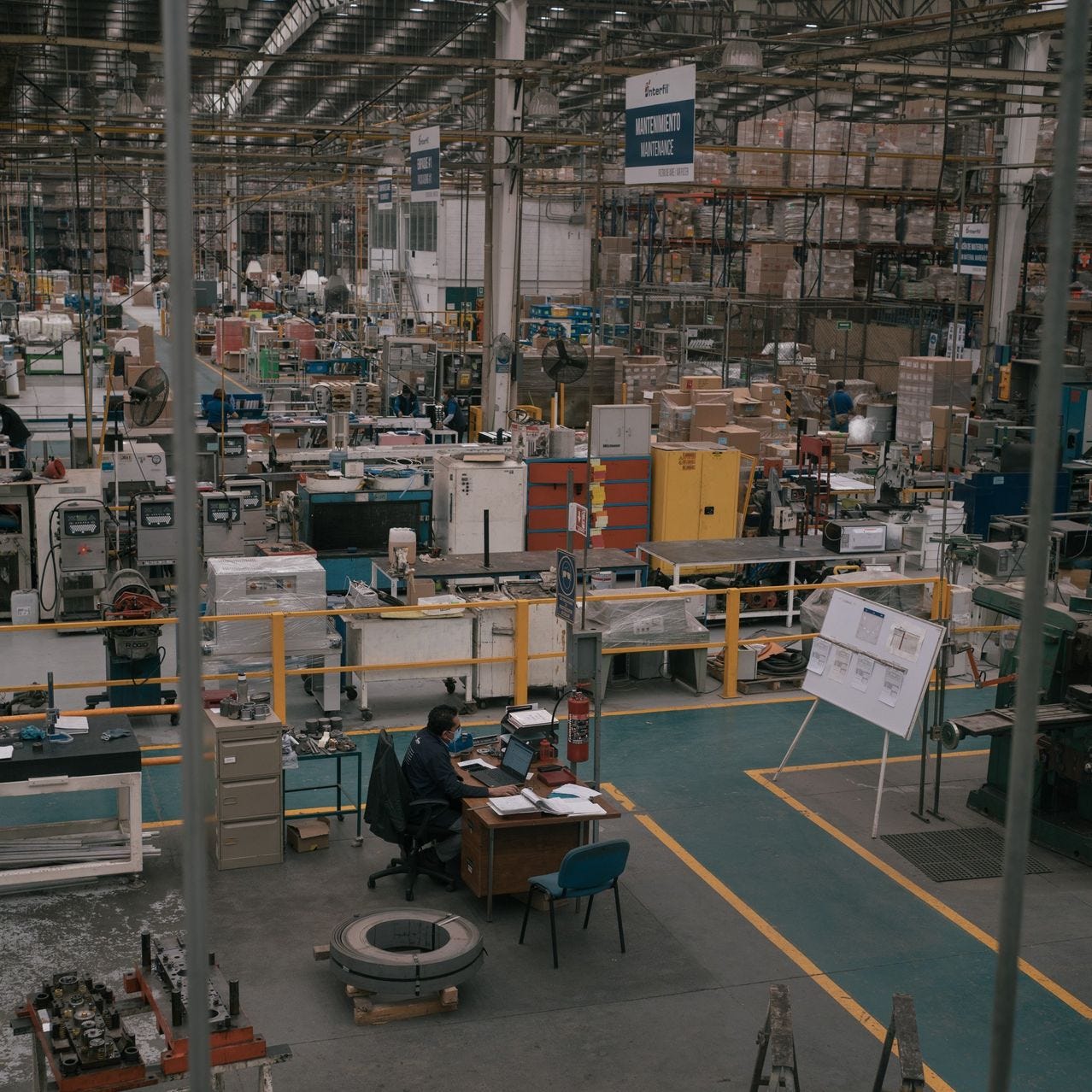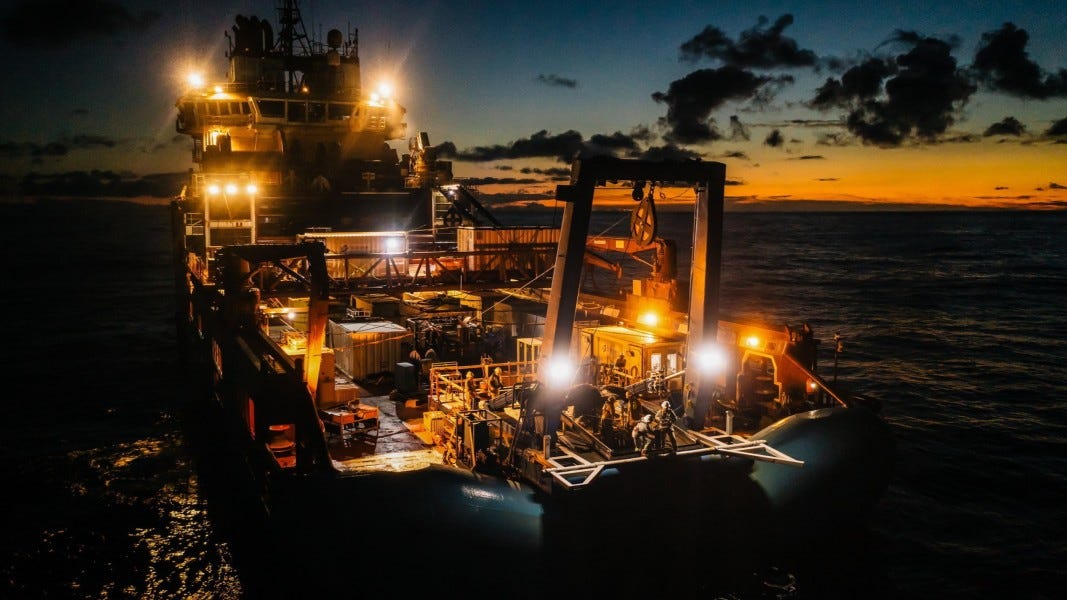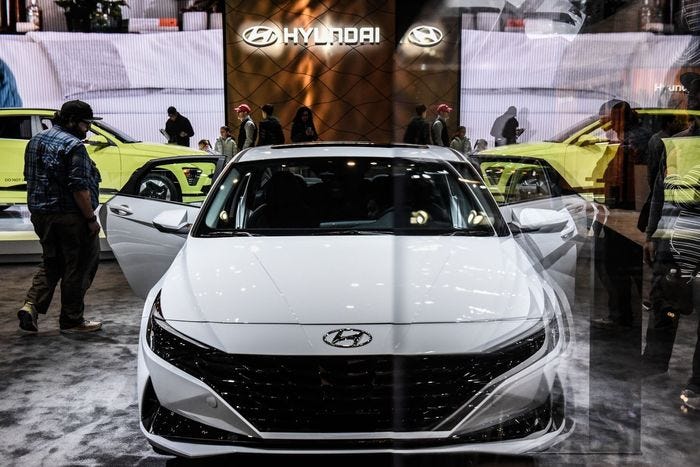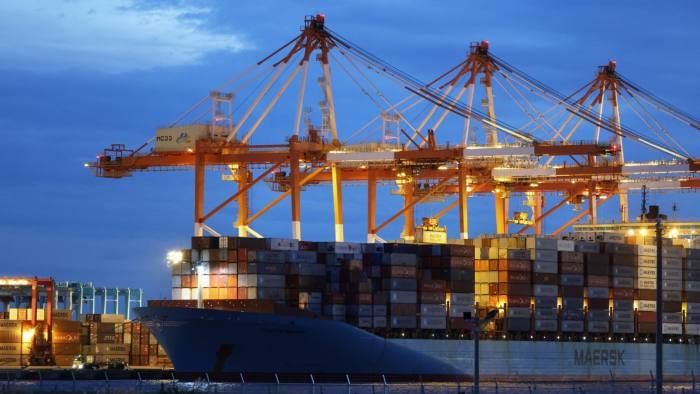The Full Stack Economist is a newsletter for entrepreneurial economists who seek to manage a nation's economy from a holistic framework. It will report information and insights on all verticals necessary to running a healthy economy. In contrast to myopic theoretical economists, this publication will cater to practical economists interested in action. Borrowing from the software concept of the full stack developer — a developer that has mastered all major areas of coding — the full stack economist is an economist that has mastered all major areas of the economy. This newsletter is a product of Ryan Research.
Lesson of the Week:
The Deep and Global Roots of International Political Economy
Political Economy author Eric Helleiner released his most recent book The Contested World Economy: The Deep and Global Roots of International Political Economy. You can buy the book through Cambridge or Amazon. He expanded on the premise of his 2nd most recent book The Neomercantilists which focused on the history of a subset of political economic thought. I interviewed Helleiner on my podcast on that book which you can find here.
I have not gotten a chance to read through the new book yet but its general theme points to an important lesson in understanding how we see economics or political economy historically and presently. The mainstream narrative is that Adam Smith invented economics in 1776 with his book The Wealth of Nations. He argued for free market capitalism and created the foundation that later capitalist economists expanded on throughout the subsequent centuries. By the 1840s, Karl Marx invented socialism with a myriad of writings of which the most polemical was The Communist Manifesto in 1848 and the most technical Das Kapital in 1867. Although Marxism ultimately proved to be a failure in the extreme, with the most evident example being the Soviet Union, capitalist economists were informed by his movement’s criticisms and reformed capitalism. This is why we have things like the welfare state and social security in capitalist economics advocated by capitalist economists.
Much of the economic intellegisia is dominated by the perspective that the intellectual development of economics is over and all that remains to do is tinkering around with tax rates, tax credits, welfare allocation, and marginal technicalities. There is a healthy minority of Marxist economists that seek to subvert economic policy into their own doctrinal ideal but for the most part they feed into the consensus of the capitalist orthodoxy. Ultimately, the current consensus leaves out a much wider, deeper, and accurate picture of the history of economic intellectual thought.
The most notable of these forgotten schools of economic thought is Neomercantilism. This features in Helleiner’s new book and was the center of his 2nd most recent mentioned earlier. As defined by Helleiner, “neomercantilists…back strategic protectionist policies and other forms of government economic activism to promote state wealth and power.” Mercantilism was the economic attitude (more so than a theory) of the 18th century which centered around state competition for resources and most acutely acquiring the most gold. Adam Smith responded to that attitude with criticisms. The “neo” in neomercantilism refers to the reaction to Smith by those that evolved mercantilism into something that could respond to Smith’s attacks. Other terms can be used to describe this school of thought like realist, developmentalist, or nationalist. One of its greatest thinkers was Friedrich List who wrote The National System of Political Economy in 1841. In it he highlighted the need for economics to focus on the national unit rather than the individual or the global as it was the most critical in policy formation and economic relationships.
It became apparent that much of the neomercantilist thought was written from a perspective of weakness. Its writers looked at their nations compared to other more powerful ones and wondered why that was. The conclusion many came to was that the more powerful ones propagandized a system of economic policies on weaker nations that they themselves did not follow. List called this “kicking away the ladder” and in 2002 Ha-Joon Chang titled his book Kicking Away the Ladder in reference to List, where he used modern research and methods to prove the general case in favor of the neomercantilist school of thought. List juxtoposed his native weak Germany of the 1840s to the powerful English empire. In this analysis, the theory of free trade capitalism, of which most of its foundational works were sourced in the United Kingdom, appeared to be a cynical product of imperialism used to keep competing nations down. And thus much of free market capitalism can be described as imperialist and much of neomercantilists can be described as anti-imperialist. List argued that England itself used neomercantilist or nationalist economic policies to grow past its European neighbors and the only way for those neighbors to catch up would be to emualte such policies. Chang offered a similar portrayal and added expansion into the 20th century and East Asian geographies.
While Helleiner might insist on a purely descriptive account of his history, I would go further into the prescriptive. What this intellectual history revealed was that the neomercatilists were often practical people interested in developing their nations and combatting imperialism. Reading up on the individual development histories of each nation also illuminates the conclusion that, possibly, only neomercantilism has the ability to develop nations. Free market capitalism and Marxism both seem like post-hoc overlays on what is often neomercantilism. Negative outcomes like wealth inequality or poverty can often be explained by unique tenets within those ideologies while there positive outcomes can often be explained by hidden neomercantilism. Neomercantilism’s alleged invention in the 19th century is also a slight misnomer. While certainly we can parameter a specific period of specific economic thought in the 19th century and call it neomercantilism, as noted above by List and Chang neomercantilism is just the evolving and perennial doctrine of how you effectively develop a national economy. Even Helleiner accounted for this and he made a special effort to highlight very old East Asian thought that mirrored such ideas.
The lesson here is to open up our minds to different ways of thinking about economics and that often requires historical research which is often neglected for statistics in mainstream economics. Once we do that are assumptions and data that feed into our statistical research may change. The Full Stack Economy is itself a derivative of neomercantalist thinking and embraces holistic and develop-oriented policy solutions. Please buy Helleiner’s books and give our podcast a watch to become more informed on these topics.
News of the Week:
Why China Is Banning Rare Earth Metal Exports
“In a high-tech and high-stakes game of you-can’t-have-what-I-have, China is quickly moving toward a ban on certain rare earth metal exports. The policy change could create a disruption in non-Chinese economies unable to source enough rare earth metals needed for high-tech products and high-performance magnets. In a report from Nikkei out of Beijing, China’s move will likely come soon in 2023, as the amendment to the country’s technology export restriction list has already passed several hurdles. This update to the list of banned export materials is likely to cause significant issues for both the United States and Japan.”
- Tim Newcomb at Popular Mechanics
Nearshoring Shift Brings Production Hurdles Closer to Home
“More and more companies are looking to follow the auto supplier’s path as they seek to navigate a world of mounting geopolitical and business uncertainty that has exposed weaknesses in far-flung supply chains. For many manufacturers, that has meant returning production closer to home, a push toward nearshoring that is chipping away at the offshoring drive over the past few decades that moved a swath of production from Western countries to low-cost centers in Asia, and most of all to China. Many companies have been looking for alternatives to China since the Trump administration in 2018 slapped the country with new tariffs on top of import duties for a range of goods. The search accelerated after the pandemic caused a sharp contraction in shipping demand, which then surged rapidly as restrictions were lifted, triggering port bottlenecks, product shortages and crumbling transportation budgets across the corporate world.”
- Paul Berger at Wall Street Journal
Which Countries are Granted the Most New Patents?
“In 2021, out of 1,608,375 patents across multiple fields, 87% were granted to innovators from just six countries. After rapidly increasing its patent output in recent years, China topped the chart in 29 out of 36 total fields including computer technology, electrical machinery, and digital communication. The Chinese government’s focus on innovation led to the nation’s applicants receiving 38% of the 1.6 million patents granted in 2021. The United States—home to the world’s largest tech companies—came in second with 286,205 granted patents by origin. The U.S. also topped four fields of its own: medical technology, engines and turbines, basic communication processes, and unknown (for inventions that can’t be assigned to a specific field).”
- Jacqueline Ann DeStefano-Tangorra at The Visual Capitalist
World Bank Report: The Logistics Performance Index and Its Indicators
“This report presents the latest view on trade logistics performance across 139 countries. Logistics is understood as a network of services that support the physical movement of goods, trade across borders, and commerce within borders. It comprises transportation, warehousing, brokerage, express delivery, terminal operations, and related data and information management.”
- The World Bank
‘Playing with fire’: the countdown to mining the deep seas for critical minerals
“The deepest parts of the Pacific Ocean have rested undisturbed for millennia. But now creatures living thousands of metres beneath the surface may be confronted by new visitors: companies mining minerals key to the green energy transition. The International Seabed Authority (ISA), the UN-backed regulator, is preparing to consider the world’s first commercial deep-sea mining application as soon as July, despite many member states warning it is too soon for extraction to leap from land into water.”
- Kenza Bryan and Harry Dempsey at The Financial Times
Wall Street Is Finally Going to Make Money Off the Permian
“The huge electronic display reads like a call to arms: “M.O.G.A. Make Oil Great Again.” The pixels soon become five drilling rigs, crude gushing from the top as if they were bottles of champagne. It stands across the street from the Petroleum Club of Midland, the Texas town that’s the capital of the Permian oil basin. Midland is all about oil and money: Its main thoroughfare (where the club and sign are located) is called Wall Street; George H. W. Bush started his oil business here in the 1950s before entering politics; the main tourist attraction is a petroleum museum. The landscape is dotted with oil drilling pads and pumpjacks that surface the hydrocarbons that power the American economy.”
- Javier Blas at Bloomberg
GM, Hyundai Tap South Korean EV Battery Makers to Build U.S. Plants
“General Motors and Samsung announced Tuesday that they are planning to invest more than $3 billion in a battery-cell factory that would begin operating in 2026. The location of the plant wasn’t disclosed but the cells will support GM’s EV capacity in North America, Chief Executive Mary Barra said. Separately, Hyundai Motor Group and South Korean battery maker SK On Co. also said on Tuesday that they have agreed to invest $5 billion to build a plant in Georgia to produce electric-vehicle battery cells, as car makers bump up spending in the U.S. to benefit from incentives in the Inflation Reduction Act.”
- Selina Cheng at Wall Street Journal
Reshoring Accelerates Significantly And Manufacturing Becomes A Digital-First Industry
“An accelerating number of CEOs whose companies depend on manufacturing to produce and deliver their goods are planning or have already successfully re-shored some of their overseas operations, the latest quarterly survey on American manufacturing resilience finds. The poll, a joint effort with Forbes, Xometry and veteran polling firm John Zogby Strategies, tracks CEO and decision-maker sentiment at more than 150 leading companies nationally and finds that 82% of CEOs have or are actively embracing reshoring strategies, up significantly from 55% in the previous survey fielded in January. Fueling the reshoring strategy is growing optimism in American manufacturing. The survey finds that more CEOs – 71% now vs 64% in Q1 – believe there is enough manufacturing capacity in America to address the world’s supply chain concerns. As they bring manufacturing closer to home, CEOs and their management teams are making good on their promise to embrace technology, especially AI, to modernize their operations and future-proof their businesses. While 59% of CEOs saying investing in digital/automated workflows is their #1 strategy, a growing majority – 51% – are now investing in AI, significantly ahead of robotics, at 30%. Nearly all CEOs and decision-makers (97%) said they believe AI will play a large role in their future operations.”
- Xometry, John Zogby Strategies
How a Google Antitrust Case Could Determine the Future of AI
“And that brings me to the recently argued antitrust case against Google, which is based on a claim by the government that Google has been restraining the development and deployment of new technologies. In 2020, the Trump Antitrust Division accused Google of monopoly maintenance, arguing that the corporation’s 90-95% of the search market is a result not of superior acumen but unlawful business methods. Google, through both contractual arrangements with partners and its ownership of mobile operating system Android, excluded competitors from the search market.”
- Matt Stoller at BIG
Will America win from de-dollarisation?
“De-dollarisation was not something that would happen overnight, that much was clear. But the wheels of history were set in motion. It is no coincidence that most of the world’s nations didn’t join the West in slapping sanctions on Russia, but quietly started strengthening their ties with Russia and China in an effort to reduce their dependence on the dollar-centric system. In just over 12 months, the world has undergone a greater tectonic shift, in geopolitical terms, than it has in decades: the long-heralded post-Western international order — comprising the BRICS and dozens of other countries making up most of the world’s population — has finally become a reality. The US, as former Treasury Secretary Larry Summers recently said, is lonelier than it has ever been.”
- Thomas Fazi at UnHerd
Fed’s All-Clear on Global Supply Chaos Spurned by Logistics Watchers
“After the New York Fed’s Global Supply Chain Pressure Index was posted Monday with a reading of -0.26, sinking below the zero level that’s consistent with the historical average, Michigan State University Associate Professor Jason Miller said in an email that it’s wrong to declare an all-clear and cited other evidence:
The Bank of Canada’s business-outlook survey for the fourth quarter of 2022, which showed some businesses said price adjustments related to previous supply disruptions continue to filter through their supply chains.
The Philly Fed’s manufacturing survey for December, which found that 45% of respondents said supply-chain issues moderately or significantly constrained capacity use.
The US Census Bureau’s quarterly survey of plant use showed issues relating to insufficient supply of materials were still about three times worse than before the pandemic in the third quarter, despite some betterment.
Institute for Supply Management data showing commodity shortfalls for some products including semiconductors running in excess of 25 months.”
- Brendan Murray at Bloomberg
Allies resist US plan to ban all G7 exports to Russia
“The EU and Japan have pushed back against a US proposal for G7 countries to ban all exports to Russia, as part of negotiations ahead of a summit of the world’s most advanced economies. A G7 leaders’ statement being drafted for their meeting in Hiroshima next month includes a pledge to replace the current sector-by-sector sanctions regime against Russia with a complete export ban with a few exemptions, according to documents seen by the Financial Times. The full export ban would include exemptions for agricultural, medical and other products.”
- Henry Foy, Kana Inagaki, and Demetri Sevastopulo at Financial Times
Robust start to the year for global aircraft market
“The global aircraft market has posted a robust start to the year, with 276 orders placed in the first quarter. The order book is 34 per cent less than Q1 2022, but orders for wide-body aircraft increased a significant 95 per cent indicating strong market confidence in the return of international travel. Aircraft manufacturers delivered 257 aircraft in Q1, the largest Q1 for deliveries since 2019, with deliveries of single-aisle aircraft dominating market recovery. Deliveries for single-aisle aircraft increased by 11 per cent set against a 10 per cent decline in wide-body deliveries in Q1 2023. Global aircraft deliveries for Q1 2023 represent a significant value of £4bn to the UK as the advanced aerospace manufacturing sector looks towards blue skies.”
- The Manufactuer





![The Contested World Economy: The Deep and Global Roots of International Political Economy by [Eric Helleiner] The Contested World Economy: The Deep and Global Roots of International Political Economy by [Eric Helleiner]](https://substackcdn.com/image/fetch/$s_!mkMr!,w_1456,c_limit,f_auto,q_auto:good,fl_progressive:steep/https%3A%2F%2Fsubstack-post-media.s3.amazonaws.com%2Fpublic%2Fimages%2F35a4a6d1-ac05-4ce2-b735-38fd35fd1d2e_427x648.jpeg)













